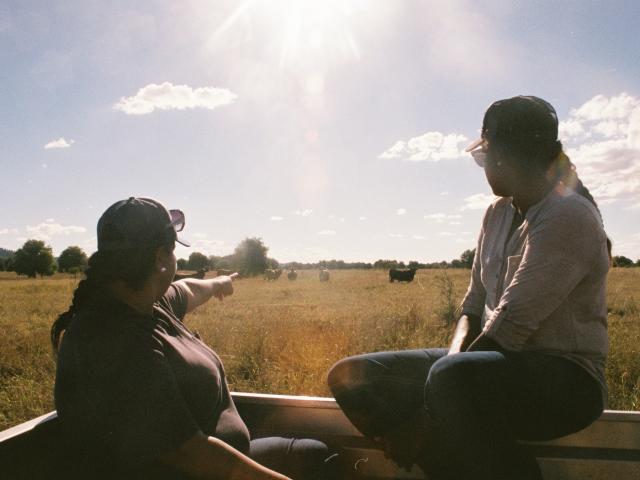Aboriginal women driving change in the WA beef industry

Aboriginal cattle stations are expected to reap benefits from current information on grazing and business management, nutrition and ecology presented at the Indigenous Cattlemen’s Workshop and Beef2018 events held recently in Rockhampton.
The Department of Primary Industries and Regional Development supported female Aboriginal pastoralists to attend the events for the second year to follow-up on their 2017 learnings.
Darrylin Gordon, of Lamboo Station in the Kimberley, is the 2018 WA Rural Woman of the Year recipient for her training and empowerment program at Lamboo Station.
Lexi Mourambine represents Yallalie Farm in the mid-west - the only Aboriginal-owned cattle backgrounding business in WA.
Aboriginal Business Development officer Daisy Goodwin accompanied the women to the event as part of ongoing support to Aboriginal pastoralists’ development and capacity building in the northern beef industry.
The five-day learning opportunity helped deliver the business and leadership development roles of the Aboriginal women.
Early classroom sessions at the workshop focused on business management training, grazing management, and principles of cattle reproduction, followed by a site visit where participants undertook soil assessments.
A Central Queensland University site visit focused on innovations and technologies, such as walk-over scales and GPS ear-tags, which allow cattle behaviour and movements to be tracked, resulting in significant management benefits to industry.
Attendance at the workshop cemented varied key learnings for the women, who are based on different landscapes and climates, and operate dissimilar pastoral businesses, and allowed them to come away with key learnings they could take back and implement at home.
Darrylin hopes to go back to Lamboo and plan which paddocks need rest by calculating stock days per hectare. She learnt a practical way to work out how much dry matter is available, which involves filling a box full of grass and weighing it, drying it out for a few weeks and weighing it again for the dry weight.
Lexi also plans to figure out the carrying capacity of her land using stock days per hectare and a permanent whiteboard with a grazing chart to reference when in the yards.
She learnt she could then see how different carrying capacities effect the land by conducting soil assessments. This involves assessing soil organic matter, root direction, compaction, biodiversity, micro-organisms and water retention.
Both women found the business management session particularly valuable, especially advice to separate funding external to the business from profit and loss spreadsheets to gauge how well the business is doing, stand-alone.
The women learnt how to create multiple business tools including stock flows, balance sheets and profit and loss statements.
A key takeaway was that the balance sheet is a ‘picture’ of the farm’s position at a particular time, whereas stock flow and profit and loss figures provide a ‘video’ of success over time.
Daisy hopes that key grazing principles and management lessons learnt from the Indigenous Cattlemen’s Workshop and Beef2018 conference and opportunities arising can be incorporated into future regional training events.
For more information contact Daisy Goodwin, Development Officer – Aboriginal Business Development, Broome on +61 (0)8 9194 1488.
